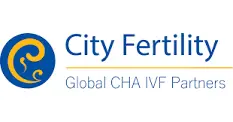By The Time I Reached 35, I was in Perimenopause
From my very first period I was on a 28-day menstrual cycle. By the end of my 20s, my periods had become incredibly irregular, scanty and painless. I had my children young and considered my family complete. I hadn’t been on birth control for a few years, so these lighter periods weren’t too concerning. However I did wonder whether this change may be Premature Ovarian Insufficiency.
Seeking a Diagnosis
The restless nights from hot flashes were really bothering me. I asked my GP to refer me to a specialist for further investigation. My gynaecologist was right onto it. I was sent away for blood tests to assess my hormones. I repeated as per doctors orders for accuracy.
On Learning I have Premature Ovarian Insufficiency
My tests returned with what my Gynaecologist and I had both expected. I had Premature Ovarian Insufficiency – I was in Perimenopause. My oestrogen and follicle stimulate hormones (FSH) both returned with below average levels for reproduction. I was prescribed a Hormone Replacement Therapy (HRT) and this has really helped with my mood swings, hot flashes and headaches.
On chatting with my mum I learnt that she too had gone into early menopause. Not as young as 35 – she was 46. Nonetheless, I couldn’t stop thinking about my sister and friends who are all in their 30s, want children, but were yet to conceive.
My recent diagnosis and discovery of family reproductive history encourage my 32 year old sister to seek the advice from a gynaecologist also. I joined her at her appointment for more insight.
Living with Premature Ovarian Insufficiency
Given our history, the gynaecologist had my sister perform a pelvic ultrasound and some routine blood tests right away. The pelvic ultrasound returned normal – no uterine fibroids, polyps or tubal blockage. However, her Anti-Mullerian Hormone (AMH) returned with a worrying result.
The AMH test assesses a woman’s ovarian reserve and the quantity of the remaining oocytes. Incredibly, the oocytes (immature eggs) we go through life with are already determined in utero! And unfortunately, my sister’s too, were low in reserve.
Her specialist was incredibly reassuring. For women who are still ovulating, like my sister, falling pregnant is still achievable even if a little help from a fertility specialist is required. The best solution was to freeze her 32-year old eggs to use at a later date that she felt ready for.
For women who have hit Perimenopause, the outcome is a little trickier. Although a harder route, women with Premature Ovarian Insufficiency still have a chance of completing their family via IVF, donor egg with partner sperm or unknown embryo.
- If you would like to learn more about perimenopause or are suffering from unexplained infertility, ask your GP for a referral to Dr Stephen Elgey for is expert opinion on infertility and gynaecology. You can call our rooms to make your appointment on 3344 – 1656







